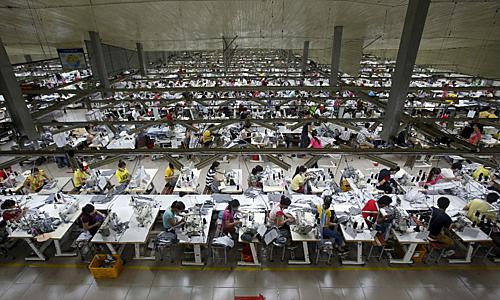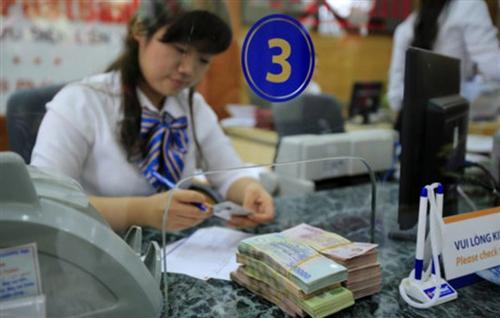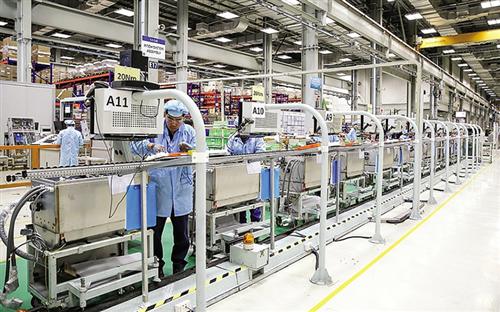Coronavirus may lower Vietnam’s State budget by VND42.3 trillion: ministry
Coronavirus may lower Vietnam’s State budget by VND42.3 trillion: ministry
The State budget may face a shortfall of some VND42.3 trillion (US$1.8 billion) this year due to the ongoing spread of the novel coronavirus, or Covid-19, according to the Ministry of Planning and Investment.

The ministry noted in a report on the impact of the viral outbreak that State budget revenues are expected to fall in the domestic, import and export and crude oil sectors.
If the outbreak is contained in the next two or three months, a number of sectors, such as tourism, transport and commercial services and the import and export of farm produce will stand to face the most direct disruption.
Also, other manufacturing and business sectors that are capable of regulating their activities will suffer a downturn, stated the ministry, adding that a trivial number of industries will maintain their operations as usual.
If the outbreak persists for four to five months or more, manufacturing sectors that require large amounts of equipment, spare parts and components and materials imported from China will run into trouble.
The ministry said the coronavirus crisis will leave Vietnam’s local and foreign-owned manufacturers vulnerable, including those operating in the footwear, textiles and garments, electronics and consumer goods sectors. Multinationals, such as tech giants Apple, Samsung and LG Electronics, may struggle.
The execution progress of projects using Chinese capital, labor and input materials will slow down and affect the growth of related sectors, according to the ministry.
At the same time, exports to China will be sluggish due to restricted travel and reduced demand. This will also have a negative impact on domestic production.
The ministry has drawn up two scenarios for the country’s State budget this year.
In the first scenario, the budget revenue will reach VND1.494 quadrillion (US$64.3 billion), down VND18.1 trillion (US$779 million) or 1.2% compared with the initial estimate, if Covid-19 is brought under control in the first quarter.
In the second scenario, where the outbreak is contained in the second quarter, the budget revenue is estimated at VND1.470 quadrillion (US$63.2 billion), down VND42.3 trillion (US$1.8 billion) or 1.6% from the estimate.
So far, Vietnam has reported 16 cases of coronavirus and has sealed off part of Bac Ninh Province, northwest of Hanoi, where some 10,000 people live, after a cluster of infections were recorded there.
Supply disruptions
A Samsung spokesperson told the Financial Times in an article published on February 17 that the firm is making every effort to minimize the impact on its operations, and its production has not yet slowed.
“The Vietnamese Government is restricting the daily volume of goods transported from China to Vietnam over land routes, but we are coping with it by increasing parts supplies from China by plane and ships,” stated the spokesperson.
The world’s largest smartphone maker produces nearly two-thirds of its phones, including its latest foldable smartphone and the Galaxy S20 5G range, at its plants in the northern provinces of Bac Ninh and Thai Nguyen.
LG Electronics, another South Korean technology manufacturer that produces mostly low- to mid-end smartphones in Vietnam, is facing similar supply disruptions.
A spokesperson told the U.K. newspaper that the firm has not yet faced any inventory problems in the Southeast Asian nation but is “considering various options” in case the crisis extends over a prolonged period.
However, analysts warned that companies reliant on some 30% of phone components coming from China could face serious problems with supplies of China-made cables, sockets and plugs as well as components for cameras.
“Their supply chains and logistics are in trouble because of the virus outbreak. If the problem persists for two more weeks, it may get out of hand,” remarked Kim Young-woo, an analyst at Korean securities brokerage firm SK Securities.
Vice Chairman of the Korea Chamber of Business in Vietnam Hong Sun was quoted by the newspaper as saying that many South Korean manufacturers only have two to four weeks’ worth of inventory at their Vietnamese sites. “The fear is that if they don’t have enough parts, they can’t make the final product,” he said.

























